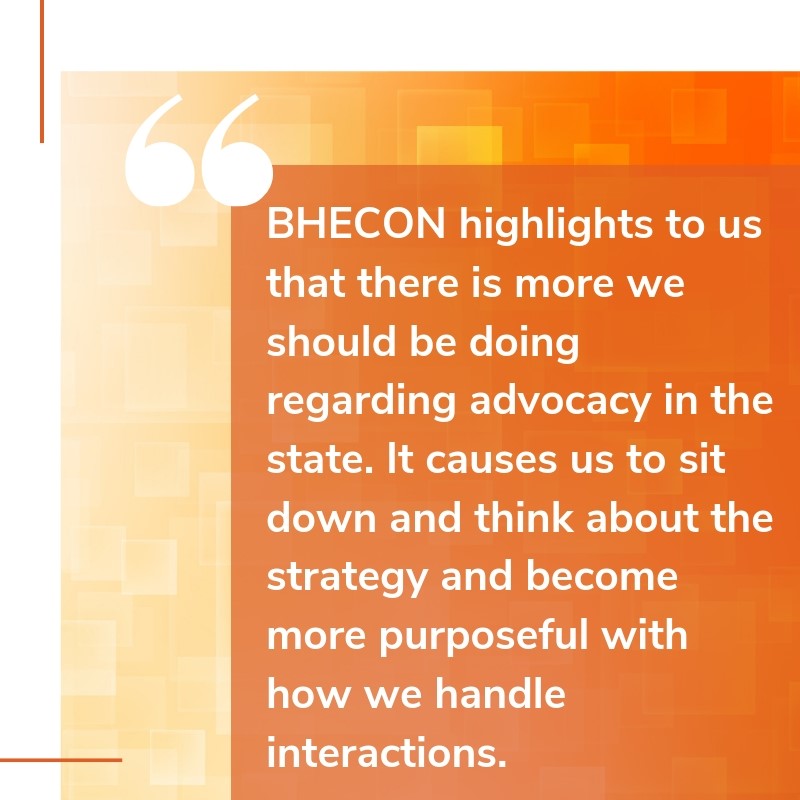The Behavioral Health + Economics Network, known as BHECON (pronounced “beacon”) unites diverse stakeholders to examine and advance policy reforms that strengthen states’ behavioral health delivery systems. Led by the National Council for Mental Wellbeing, along with state associations of behavioral health providers, BHECON builds capacity for increased advocacy at the state level to improve the lives of individuals living with serious mental illness.
BHECON also maintains the Research Hub, a central repository for health economic data and research on the total costs of untreated mental illness, along with other important topics related to access to care. BHECON partnered with the Leonard D. Schaeffer Center for Health Policy and Economics at the University of Southern California to aggregate data on the state of behavioral health in each of the participating states. Comprehensive, state-specific behavioral health data chartbooks are developed for participating states and that data is used to create advocacy materials showing the return on investment and potential cost savings of fully funded behavioral health services.
In 2016-2017, BHECON partnered with five states – Connecticut, Illinois, Massachusetts, Missouri and Pennsylvania – to host a series of widely-attended forums examining behavioral health delivery system challenges and policy solutions. This generated a Consensus Statement on State Policy Reform summarizing the policy issues that were identified and require legislative or regulatory action, plus the recommended changes that would help improve their residents’ access to timely, high-quality mental health and addiction care.
BHECON also partnered with New York to raise the profile of behavioral health and the importance of safety-net funding in providing needed community services.


